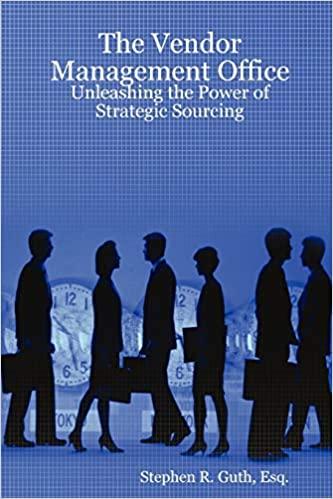Question
Thanks for Nothing Although it may seem fairly obvious that receiving praise and recognition from ones company is motivating experience, it is sad that many
Thanks for Nothing
Although it may seem fairly obvious that receiving praise and recognition from ones company is motivating experience, it is sad that many companies are failing miserably when it comes to saying thanks to their employees. According to a recent report by Blessing White Inc., 24 percent of Indian workers are highly disengaged, meaning that they couldnt care less about their organization. Employee recognition programs, which became more popular as the world economy shifted from individual to knowledge based, can be effective way to motivate employees and make them feel valued. In many cases, however, recognition programs are doing more harm than good, according to Curt Coffman, global practice leader at Gallop.
Consider Ko, a 50-year old former employee of a dotcom in California. Her company proudly instituted a reward program designed to motivate employees. What were the rewards for a job well done? Employees would receive a badge that read U Done Good Job and each year, would receive a t-shirt a means of annual recognition. Once an employee received 10 U Done Good Job badges, he/she could trade them in form something bigger and better a paperweight. Ko states that she would have preferred a raise. It was patronizing. There wasnt any deep thought involved in this. To make matters worse she says the badges were handed out arbitrarily and were not tied to performance. And what about those t-shirts? Ko states that the company instilled a strict dress code, so employees could not even wear the shirts if they wanted to do so. Needless to say, the employee recognition program seemed like an empty gesture rather than a motivator.
Even programs that provide employees with more expensive rewards can backfire especially if the rewards are given insincerely. Employees may find more value in a sincere pat on the back than in gift from management that either are meaningless or are not conveyed with respect and sincerity. However, sincere pats on the back may be hard to come by. A gallop poll found that 61 percent of employees stated that they had not received a sincere thankyou from management in the past year. Findings such as these are troubling, as verbal rewards are not only inexpensive for companies to hand out, but also quick and easy to distribute. Of course, verbal rewards do need to be paired sometimes with tangible benefits that employees value after all, money talks. In addition when praising employees for a job well done, managers need to ensure that the praise is given in conjunction with the specific accomplishment. In this way employees may not only feel valued by their organizations but will also know what actions to take to be rewarded in future.
Questions
- If praising employees for doing a good job seems to be a fairly easy and obvious motivational tool, why do you think companies and managers do not often do it?
- As a manager what steps would you take to motivate your employees after observing them perform well?
- Are there any downsides to giving employees too much verbal praise? What might these downsides be, and as a manager how could you alleviate them?
- As a manager, how would you ensure that recognition given to employees is distributed fairly and justly?
Step by Step Solution
There are 3 Steps involved in it
Step: 1

Get Instant Access to Expert-Tailored Solutions
See step-by-step solutions with expert insights and AI powered tools for academic success
Step: 2

Step: 3

Ace Your Homework with AI
Get the answers you need in no time with our AI-driven, step-by-step assistance
Get Started


